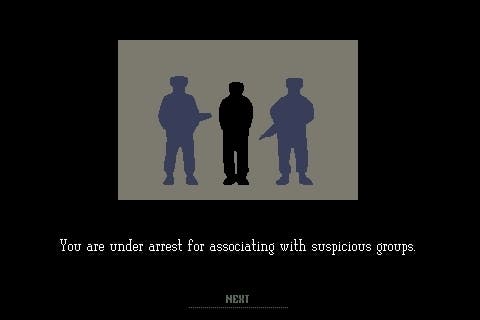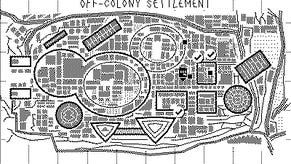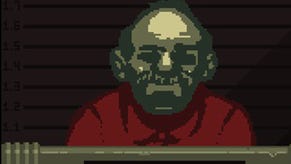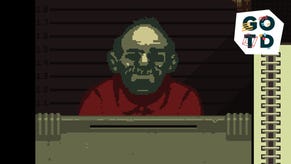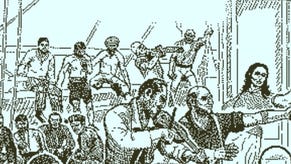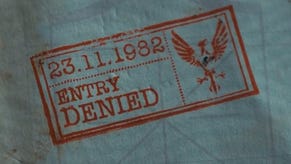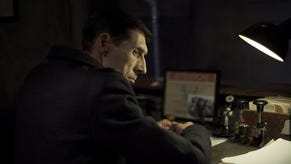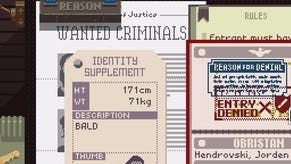Games of 2013: Papers, Please
Cause no trouble.
Even if Lucas Pope had had one million dollars to develop Papers, Please, even if he'd had an army of engineers, animators and producers at his disposal, even if he'd had all the time in the world, he wouldn't have produced a better Papers, Please than the one he did all by himself.
Pope's border control brain teaser looks as cold as it sounds. Its minimalist pixel-art visuals are a virtual vision of the Soviet Union so fitting you can't imagine the game looking anything other than as grey as it does. The "dah, dum, der, dum, dah, dum, der, dum" title screen music hammers a nail deep into your brain, and then comes the quiet, harsh reality of your passport inspection job: nothing superfluous, just the digitised croaks of the lucky few who make it to your window, a car driving through the snow nearby, and that never-ending megaphone bark: "NEXT." Papers, Please is wonderfully bleak.
Gameplay. What a word. I'm not sure I play Papers, Please. Rather, I struggle through it, my mind frayed, my wits shooting off towards somewhere near the end of the queue of blocky black shadows that shuffles ever closer to my stamp: approved, denied. Cause no trouble.
Papers, Please is stressful. As the rules of border control become more complex you need to process people faster so you earn enough money to prevent your family from starving or freezing to death from the bitter, Arstotzkan winter cold in your soulless apartment block. Rush while hunting for discrepancies and you risk making a mistake. After each stamp press you hold your breath. Will that terrible automated typewriter sound spit out a violation message at you? It does! Damn! How did I miss that his weight on his passport didn't match his weight on my scales? Sorry, that's coming out of your meagre wage. Great. I guess my mother-in-law will bite the dust tonight then. Huh. I can live with that.
It's a mechanic that puts you, the player, in your place. In most games you are the world's most powerful being, clicking your fingers to engulf a thousand insignificant curs in flame. In Papers, Please, you are nothing more than a cog in the machine, desperately struggling to survive in a world that at best tolerates your existence. If there is a more deliciously cruel risk/reward system in a game released in 2013, I am yet to find it.
Then, when you settle into Papers, Please's gameplay, something magical happens. Just as you get to grips with the deliberately cumbersome user interface, just as the world map, its countries, its cities and its rules and regulations start to snuggle into that corner of your mind where 'things that you probably should remember' like to hunker down, Papers, Please reveals itself to be more than a quirky puzzle-solving game. Much more. It reveals itself to be best role-playing game of the year.
BioWare eat your heart out, for Lucas Pope has without cinematics or fancy conversation wheels created a world filled with more befuddling moral conundrums than all your big budget Babylon 5 video games mustered over the course of an entire console generation.
"There is so much about Papers, Please that is different - even if it is depressing - that the game refreshes even the most jaded of palettes."
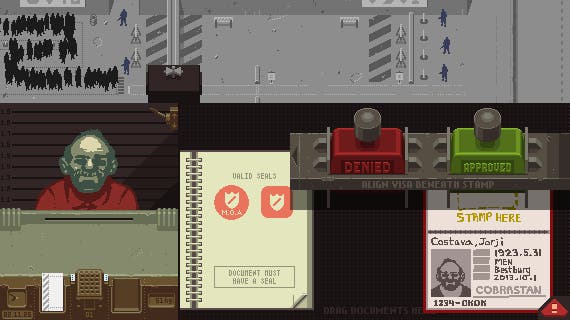
Papers, Please's genius is that it tricks you into role-playing. Should I play by the book, granting entrance into Arstotzka only when papers are present and correct? Or should I show compassion, letting a mother who is desperate to see her family through border control despite the fact her lack of an entry ticket means I'll be charged 10 credits for the trouble? Should I work with my paranoid superiors as they weed out a shadowy organisation hell bent on overthrowing the government? Or should I work against them, risking my family, my job, and maybe even my life in the process? Papers, Please challenges the player with some truly troubling moral dilemmas that make it much more than a puzzle game. Pick one: do this terrible thing or this other terrible thing. The choice is yours.
Of course, the bulk of the game revolves around mastering the art of processing NPCs as efficiently as possible - and it's incredibly satisfying to do so. Get through a day having processed 10 or so people without making a single mistake and you feel delighted with yourself. It's that feeling of going beyond treading on a video game's toes to leading it in a waltz. You settle into a routine. You establish methods. You find yourself able to scan multiple documents for inconsistencies in just a few seconds, your mouse cursor a blur as you sniff out fraudsters. Eventually, you enter the zone: NEXT, click, drag, scan, shuffle, APPROVED. NEXT, click, drag, scan, shuffle, DENIED. NEXT... It's like when Neo finally sees The Matrix for what it is.
This would probably be enough for Papers, Please to be one of my favourite games of the year. But what makes it my game of 2013 is the story and the brilliance with which it made me complicit in its outcome. I wish I could replay Papers, Please for the first time again, all knowledge of the results of my decision-making erased from my brain. I want to delight in the plot again. I want to be emotionally manipulated again. I want to gasp at the attack on my border control checkpoint and shake my head at the unfussy way the game's characters deal with its brutality again. As I have some poor, crying person arrested for daring to forget their work pass - sent off to god knows where for who knows what. I want to say out loud, for the first time again: "What have I become?"
There is so much about Papers, Please that is different - even if it is depressing - that the game refreshes even the most jaded of palettes. Pope describes it as a dystopian document thriller You play an immigration inspector, not some superhero space marine. You decide the fate of the smugglers, spies, terrorists, prostitutes, downtrodden, desperates and, if you play your cards right, Arstotzka itself. Papers, Please is unlike any God game ever made, granting the player a power fantasy we never knew we craved. I often hear Papers, Please described as "not fun", but it is fun. It's just different, terrifying, worrying fun.
Apparently Pope has never had even the slightest trouble with immigration, and he's travelling across Southeast Asia. Can you imagine how Papers, Please might have turned out had he suffered the same fate as some of the people in his game? Dah, dum, der, dum, dah, dum, der, dum...
